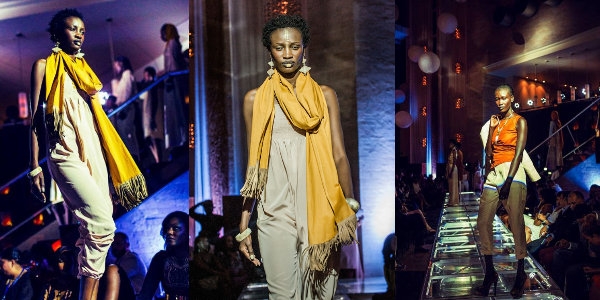
When Deepa Dosaja returned to Nairobi in the early ’90s after spending most of her life in Canada, she found herself working in a market that had little interest in local fashion brands.
“The people who could afford high-end clothing were travelling and preferred to spend their money abroad,” Dosaja recalls.
Two decades later, however, and the clothing designer says there has been a shift in attitudes, with more and more Kenyan consumers embracing quality, locally designed clothing brands.
Dosaja started her fashion business in 1994 after working for a clothing manufacturer and retailer. For the first fifteen years her customers were mostly expatriates, but, five years ago, local consumers started to take notice.
“I think back then [local consumers] were just not proud of things made in Kenya,” she says. “I have seen the industry change completely in the last 25 years. We see now as a society how important it is to dress well. We are realising as men and women that clothing should be part of our budgets, as it is in the West.”
The Deepa Dosaja label is targeted at high-income consumers and offers both made-to-measure and off the rack collections that retail at Ksh.15,000-100,000 ($148-$990).
“I think our price range is fair because we use the finest fabrics. A lot of my garments are one of a kind. I design stretch-silk prints, for example, and we manufacture only 20 metres of each print. So we can make eight dresses and that is it,” says Dosaja. The label uses only natural fabrics such as silk, wool, linen and cottons, imported from Europe.
When she meets clients, Dosaja asks them about their work and social circles to avoid selling similar clothing to friends or work colleagues. The company also keeps a database of consumers and the type of clothing they have purchased.
“It’s really not fair to sell somebody something beautiful and then it turns out that their friend has the same thing. You don’t want to be going to a wedding and have somebody sit next to you in the same dress.”
Expanding consumer reach
While she intends to keep the Deepa Dosaja label exclusive, Dosaja is set to unveil a new fashion line, ‘Kayaja’, that will be more accessible and affordable, with items retailing at Ksh.7,000-15,000 ($69-$148).
Dosaja explains the new label will use the same design aesthetics but that she wants more people to be able to afford her designs and to learn to support locally-manufactured clothing.
Kayaja will be sold online and in various fashion stores, in addition to Dosaja’s Westlands (an upmarket Nairobi suburb) boutique.
A more vibrant industry
One of the challenges Dosaja has faced is building and maintaining a level of quality that appeals to well-travelled consumers who shop internationally.
“One of the main things that I pride my brand on is quality. Everything has to be perfect in order for our customer to buy it. The customer can afford to go abroad and pick up something, so why shouldn’t we be able to give them the same quality as they would get abroad.”
Since she founded her business, Dosaja says that Kenya has started to enjoy a “beautiful, vibrant art scene”, with more fashion shows and fashion magazines, and an increasing appreciation for local designers, jewelers, models and other artists.
“We are becoming a well-rounded society that appreciates these things,” says Dosaja. “Twenty-five years ago it was embarrassing to to tell people that you’re a designer. Now universities are offering design programmes. And I have taught so many of my staff, including cleaning ladies, how to design clothing. Fashion has become a respectable career.”
After more than two decades, Dosaja says that she is still passionately interested in both fashion and entrepreneurship. She attributes this to keeping up with market changes, constantly interacting with consumers and being involved in various and new aspects of the business.
“I realised the other day that I love stitching, and I have started doing that. I stitch the first sample, and sure, it won’t be perfect – and it is never sold – but I still just love getting behind the machine and creating things. You have to keep finding out what it is that brings you joy about the business,” she says.
Dosaja advises upcoming entrepreneurs to invest in areas they have a passion for, persevere through the tough times, and delegate duties to avoid becoming overwhelmed.
Credit: howwemadeitinafrica.com



